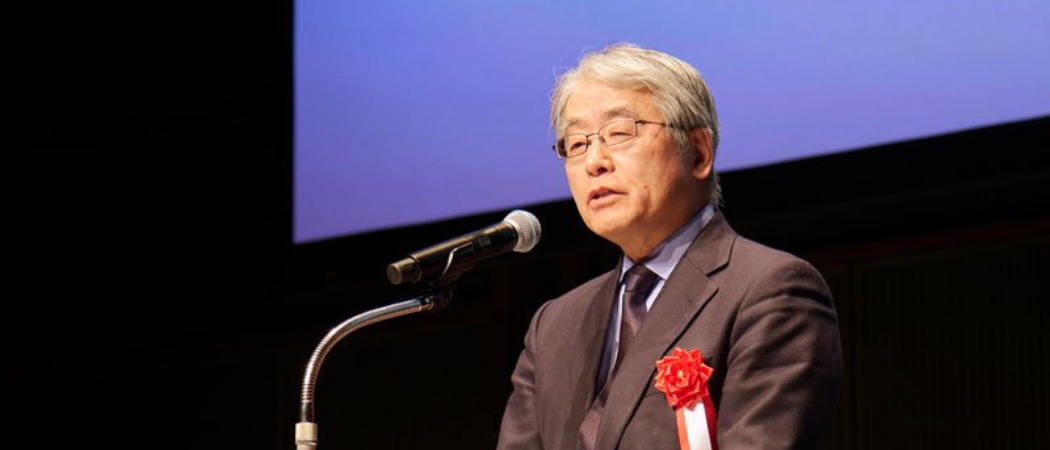A senior science advisor to the country’s government tells Science|Business why science relations with the US and China are now fraught

Takahiro Ueyama, special advisor to the Council for Science, Technology and Innovation in Japan’s cabinet office. Photo credits: Tohoku University
Japan is edging closer to signing off on a deal to join the EU’s €93.5 billion Horizon Europe research and innovation programme, with research Commissioner Ekaterina Zaharieva flying to the country on 2 October to continue talks.
It would be the biggest country yet to associate to Horizon Europe, after Canada, South Korea and New Zealand joined the programme as part of an EU push to expand it globally.
“The government, including the MOF [Ministry of Finance] is now progressing Japan's association,” Takahiro Ueyama, special advisor to the Council for Science, Technology and Innovation in Japan’s cabinet office, told Science|Business. “It might take time but surely they are moving forward.”
The EU has been courting Japan for years, but formal negotiations only began in November 2024. Since this summer, however, signs have picked up that association might be imminent. At a summit in July, Brussels and Tokyo said they hoped to complete negotiations “this year.”
And in September, there were warm words about association from Japan’s economic security minister Minoru Kiuchi. “Continuing constructive discussions and flexible approaches through ongoing cooperation” were needed to strike a deal, he said in a statement.
However, Horizon Europe will only run until 2028, when it will be superseded by a new Framework Programme more heavily focused on European defence and technological autonomy. How collaboration on more sensitive topics with Japan and other countries outside the EU will work remains unclear.
Still, negotiations to associate are continuing apace. Last month, Australia launched exploratory talks to join, after the US withdrew some funding to Australian universities, denting confidence in Washington as a science partner. Singapore is also in talks with Brussels.
US turmoil
Association would come just as Japan is trying to adapt to Donald Trump’s heavy cuts to science, with implications for Japan’s research relationship with the US, Ueyama told Science|Business in an interview.
Japan is trying to reconfigure its science and technology policy amid a “transformation of geopolitics” and is “seeking another way to be independent” during the turmoil, he said.
He predicted the upheaval in US science would last beyond Trump’s current term, and pointed to the targeting of top universities and budget cuts at the National Institutes of Health.
Like countries in Europe, Japan is trying to capitalise on US turmoil, and has set up a fund worth €580 million to tempt researchers to Japan.
US researchers will probably prefer to leave for Canada or Europe, Ueyama acknowledged. But Japan had a better shot at attracting Japanese scientists leaving the US, he said.
Strains with China
Just as the partnership with the US is under strain, Japan’s science links with China are also getting more difficult, said Ueyama.
“We don't know at all what's going on within China,” he said, as Japanese officials and businesspeople had eschewed visiting the country over security risks and fears of arrest.
While publication data emerging from China made its science system seem “so advanced,” understanding on the ground is lacking, he said, and Japan often had to go through Taiwanese intermediaries to get real intelligence about what was happening in Chinese labs.
Defence research
Following Russia’s full-scale invasion of Ukraine and the rise of China as military power in East Asia, Japan has announced it will double its defence spending to 2% of GDP.
Ueyama said there was an opportunity in Japan to funnel some of this money into research spending. “You cannot keep buying weapons,” he said, and the pivot to defence had to involve research too.
Related articles
- Australia and EU launch exploratory talks for Horizon Europe association
- Associated countries weigh up leaked plans for next Framework Programme
- Dual use research in FP10 could cause problems for associated countries, says EU’s chief negotiator
However, Japanese researchers, haunted by memories of academic collaboration with the government prior to World War 2, remain rather pacifist, said Ueyama, and may be reluctant to participate in defence-related research.
There is a lot of “resistance, a lot of negative sentiment. They abhor the national security issues,” he said, although this was changing.





 A unique international forum for public research organisations and companies to connect their external engagement with strategic interests around their R&D system.
A unique international forum for public research organisations and companies to connect their external engagement with strategic interests around their R&D system.